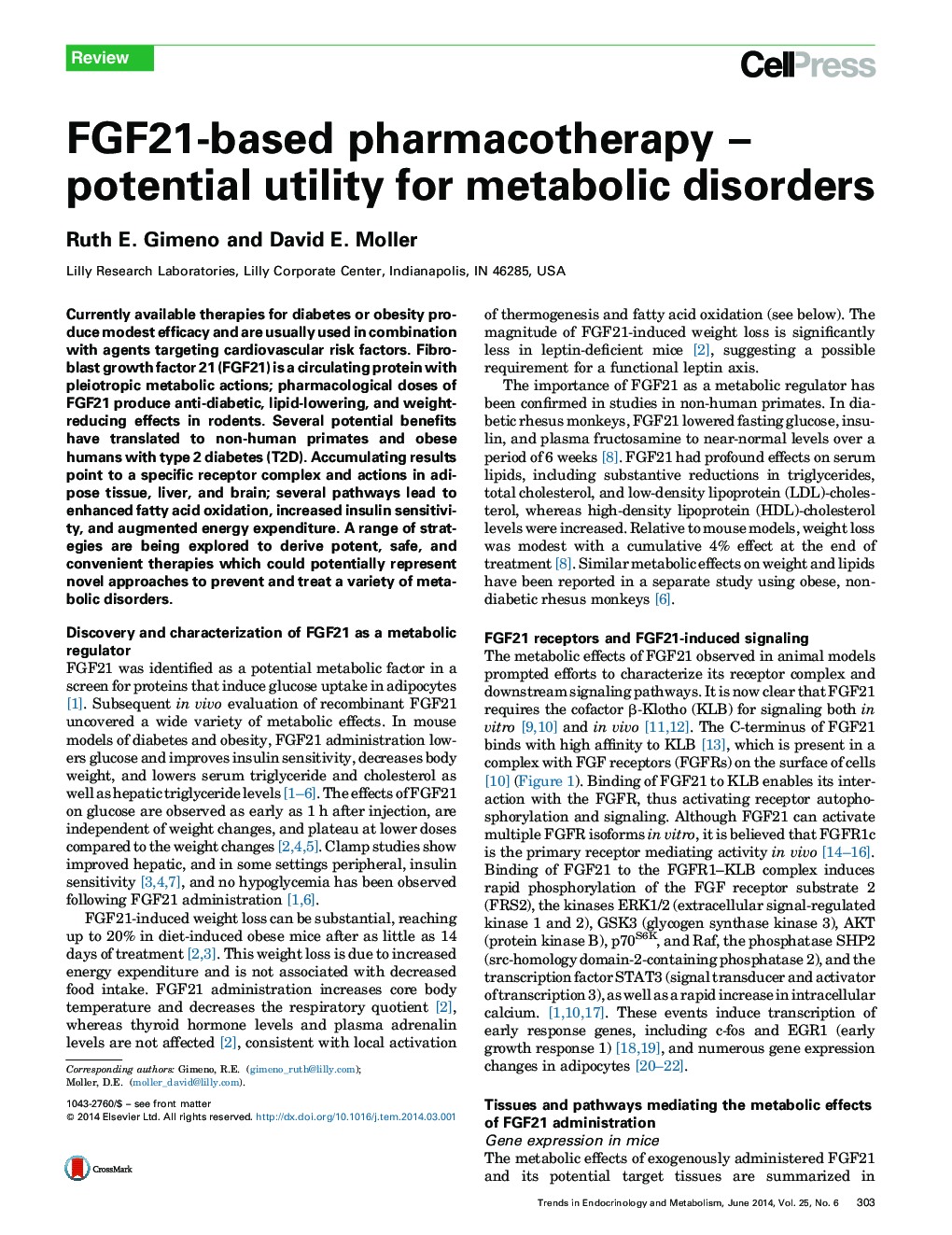| Article ID | Journal | Published Year | Pages | File Type |
|---|---|---|---|---|
| 2810287 | Trends in Endocrinology & Metabolism | 2014 | 9 Pages |
•FGF21 is a secreted protein that reduces glucose levels, decreases body weight, and decreases serum lipids in rodents and non-human primates.•FGF21 signals primarily through the β-Klotho/FGFR1c receptor complex with adipose tissue being a key target for its metabolic actions.•Endogenous FGF21 circulates at variable levels and plays a role in mediating the physiological response to starvation and a variety of other metabolic stresses.•FGF21-based therapies are being developed and a FGF21-based analog has shown promising results in a human proof-of-concept trial.
Currently available therapies for diabetes or obesity produce modest efficacy and are usually used in combination with agents targeting cardiovascular risk factors. Fibroblast growth factor 21 (FGF21) is a circulating protein with pleiotropic metabolic actions; pharmacological doses of FGF21 produce anti-diabetic, lipid-lowering, and weight-reducing effects in rodents. Several potential benefits have translated to non-human primates and obese humans with type 2 diabetes (T2D). Accumulating results point to a specific receptor complex and actions in adipose tissue, liver, and brain; several pathways lead to enhanced fatty acid oxidation, increased insulin sensitivity, and augmented energy expenditure. A range of strategies are being explored to derive potent, safe, and convenient therapies which could potentially represent novel approaches to prevent and treat a variety of metabolic disorders.
